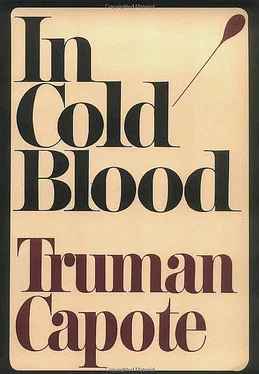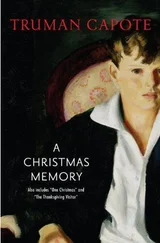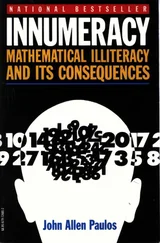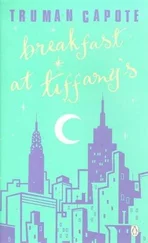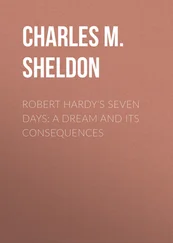Perry produced his harmonica (his since yesterday, when he stole it from a Barstow variety store) and played the opening bars of what had come to be their “marching music”; the song was one of Perry’s favorites, and he had taught Dick all five stanzas. In step, and side by side, they swung along the highway, singing, “Mine eyes have seen the glory of the coming of the Lord; He is trampling out the vintage where the grapes of wrath are stored.” Through the silence of the desert, their hard, young voices rang: “Glory! Glory! Hallelujah! Glory! Glory! Hallelujah!”
The young mans name was Floyd Wells, and he was short and nearly chinless. He had attempted several careers, as soldier, ranch hand, mechanic, thief, the last of which had earned him a sentence of three to five years in Kansas State Penitentiary. On the evening of Tuesday, November 17, 1959, he was lying in his cell with a pair of radio earphones clamped to his head. He was listening to a news broad-cast, but the announcer’s voice and the drabness of the day’s events (“Chancellor Konrad Adenauer arrived in London today for talks with Prime Minister Harold Macmillan… President Eisenhower put in seventy minutes going over space problems and the budget for space exploration with Dr. T. Keith Glennan”) were luring him toward sleep. His drowsiness instantly vanished when he heard, “Officers investigating the tragic slaying of four members of the Herbert W. Clutter family have appealed to the public for any information which might aid in solving this baffling crime. Clutter, his wife, and their two teen-age children were found murdered in their farm home near Garden City early last Sunday morning. Each had been bound, gagged, and shot through the head with a .12-gauge shotgun. Investigating officials admit they can discover no motive for the crime, termed by Logan Sanford, Director of the Kansas Bureau of Investigation, as the most vicious in the history of Kansas. Clutter, a prominent wheat grower and former Eisenhower appointee to the Federal Farm Credit Board…”
Wells was stunned. As he was eventually to describe his reaction, he “didn’t hardly believe it.” Yet he had good reason to, for not only had he known the murdered family, he knew very well who had murdered them.
It had begun a long time ago—eleven years ago, in the autumn of 1948, when Wells was nineteen. He was “sort of drifting around the country, taking jobs as they came,” as he recalled it. “One way and another, I found myself out there in western Kansas. Near the Colorado border. I was hunting work, and asking round, I heard maybe they could use a hand over to River Valley Farm—that’s how he called his place, Mr. Clutter did. Sure enough, he put me on. I stayed there I guess a year—all that winter, anyway—and when I left it was just ‘cause I was feeling kind of footy. Wanted to move on. Not account of any quarrel with Mr. Clutter. He treated me fine, same as he treated everybody that worked for him; like, if you was a little short before payday, he’d always hand you a ten or a five. He paid good wages, and if you deserved it he was quick to give you a bonus. The fact is, I liked Mr. Clutter much as any man I ever met. The whole family. Mrs. Clutter and the four kids. When I knew them, the youngest two, the ones that got killed—Nancy and the little boy what wore glasses—they were only babies, maybe five or six years old. The other two—one was called Beverly, the other girl I don’t remember her name—they were already in high school. A nice family, real nice. I never forgot them. When I left there, it was sometime in 1949. I got married, I got divorced, the Army took me, other stuff happened, time went by, you might say, and in 1959—June,1959, ten years since I last seen Mr. Clutter—I got sent to Lansing. Because of breaking into this appliance store. Electrical appliances. What I had in mind was, I wanted to get hold of some electrical lawn mowers. Not to sell. I was going to start a lawn-mower rental service. That way, see, I’d have had my own permanent little business. Course nothing come of it—‘cept I drew a three-to-five. If I hadn’t, then I never would have met Dick, and maybe Mr. Clutter wouldn’t be in his grave. But there you are. There it is. I come to meet Dick.
“He was the first fellow I celled with. We celled together I guess a month. June and part of July. He was just finishing a three-to-five—due for parole in August. He talked a lot about what he planned to do when he got out. Said he thought he might go to Nevada, one of them missile-base towns, buy hisself a uniform, and pass hisself off as a Air Force officer. So he could hang out a regular washline of hot paper. That was one idea he told me. (Never thought much of it myself. He was smart, I don’t deny, but he didn’t look the part like no Air Force officer.) Other times, he mentioned this friend of his. Perry. A half-Indian fellow he used to cell with. And the big deals him and Perry might pull when they got together again. I never met him—Perry. Never saw him. He’d already left Lansing, was out on parole. But Dick always said if the chance of a real big score came up, he could rely on Perry Smith to go partners.
“I don’t exactly recall how Mr. Clutter first got mentioned. It must have been when we were discussing jobs, different kinds of work we’d done. Dick, he was a trained car mechanic, and mostly that was the work he’d done. Only, once he’d had a job driving a hospital ambulance. He was full of brag about that. About nurses, and all what he’d done with them in the back of the ambulance. Anyway, I informed him how I’d worked a year on a considerable wheat spread in western Kansas. For Mr. Clutter. He wanted to know if Mr. Clutter was a wealthy man. Yes, I said. Yes, he was. In fact, I said, Mr. Clutter had once told me that he got rid often thousand dollars in one week. I mean, said it sometimes cost him ten thousand dollars a week to run his operation. After that, Dick never stopped asking me about the family. How many was they? What ages would the kids be now? Exactly how did you get to the house? How was it laid out? Did Mr. Clutter keep a safe? I won’t deny it—I told him he did. Because I seemed to remember a sort of cabinet, or safe, or something, right behind the desk in the room Mr. Clutter used as an office. Next thing I knew, Dick was talking about killing Mr. Clutter. Said him and Perry was gonna go out there and rob the place, and they was gonna kill all witnesses—the Clutters, and anybody else that happened to be around. He described to me a dozen times how he was gonna do it, how him and Perry was gonna tie them people up and gun them down. I told him, ‘Dick, you’ll never get by with it.’ But I can’t honestly say I tried to persuade him different. Because I never for a minute believed he meant to carry it out. I thought it was just talk. Like you hear plenty of in Lansing. That’s about all you do hear: what a fellow’s gonna do when he gets out—the holdups and robberies and so forth. It’s nothing but brag, mostly. Nobody takes it serious. That’s why, when I heard what I heard on the earphones—well, I didn’t hardly believe it. Still and all, it happened. Just like Dick said it would.”
That was Floyd Wells’ story, though as yet he was far from telling it. He was afraid to, for if the other prisoners heard of his bearing tales to the warden, then his life, as he put it, “wouldn’t be worth a dead coyote.” A week passed. He monitored the radio, he followed the newspaper accounts—and in one of them read that a Kansas paper, the Hutchinson News, was offering a reward of one thousand dollars for any information leading to the capture and conviction of the person or persons guilty of the Clutter murders. An interesting item; it almost inspired Wells to speak. But he was still too much afraid, and his fear was not solely of the other prisoners. There was also the chance that the authorities might charge him with being an accessory to the crime. After all, it was he who had guided Dick to the Clutters’ door; certainly it could be claimed that he had been aware of Dick’s intentions. However one viewed it, his situation was curious, his excuses questionable. So he said nothing, and ten more days went by. December replaced November, and those investigating the case remained, according to increasingly brief newspaper reports (radio newscasters had ceased to mention the subject), as bewildered, as virtually clueless, as they had been the morning of the tragic discovery.
Читать дальше
